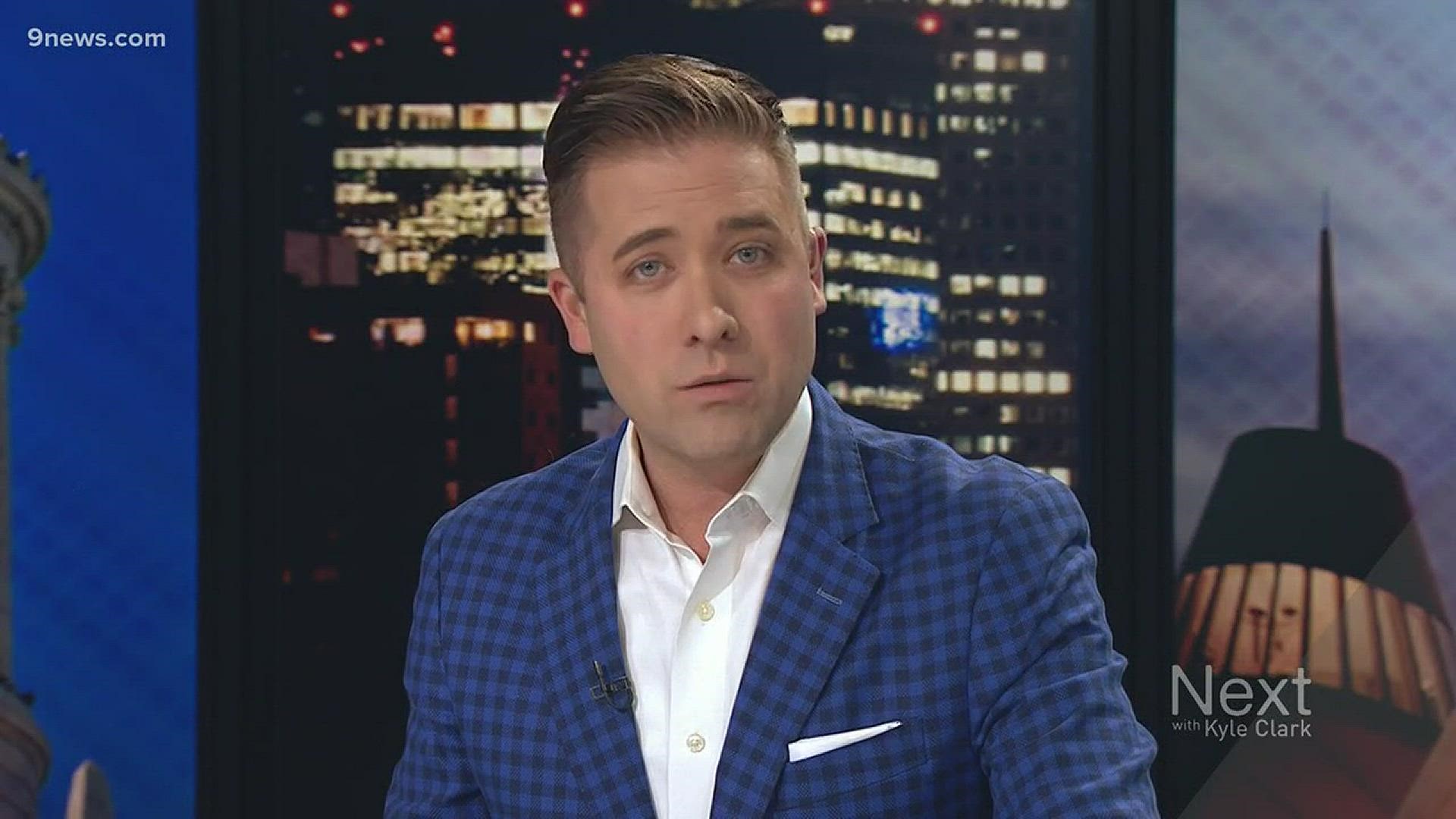Legislation that would allow a judge to take weapons from someone deemed an "extreme risk" was introduced for a second year at the State Capitol on Thursday afternoon.
This 2019 bill was again sponsored by House Majority Leader Rep. Alec Garnett (D-Denver) and first-year lawmaker Rep. Tom Sullivan (D-Centennial). Sullivan's son, Alex, was killed in the Aurora Theater Shooting on July 20, 2012. He was elected in November and campaigned on getting red flag legislation passed into law.
The so-called red flag bill, called the "Deputy Zackari Parrish III Violence Protection Act," was named for the fallen Douglas County Sheriff's deputy who was killed on Dec. 31, 2017, while responding to a disturbance at an apartment.
The shooter, who was also killed, was in the sheriff's office system as a "hazard," and when deputies responded on New Year's Eve, a message was sent to them calling it a "minimum 2 car response" and warning that he was a "veteran suffering PTSD" who "has access to weapons" and "is hostile towards law enforcement."


The only prominent Republican to join Sullivan at Thursday's press conference for the bill was Douglas County Sheriff Tony Spurlock, who advocated for such a law last year. Their absence prompted a strong response from Sullivan.
"Watching your child's body drop into the ground is as bad as it gets. And I'm going to do everything I can to make sure that none of you have to do that," he said.
If HB19-1177 becomes law, it would allow family members or law enforcement to petition a court to have a person evaluated, and if deemed an "extreme risk," would allow the judge to order weapons be taken away from that person.
The 2018 version of the bill passed the Democratic-controlled House, with two Republicans voting in favor. It died in the Republican-controlled Senate, in a 3-2 party-line vote in its first committee.
But circumstances have changed in the last nine months. Not only do Democrats now control the House and Senate, but there are a Democratic governor and attorney general. The bill itself has also changed.
After a hearing to determine if the person should have their weapons temporarily taken away, a judge will have 14 days to hold a full hearing. The 2018 version only allowed for seven days between hearings.
Once the hearing is set, that person will be given an attorney at the state's expense. Unlike a public defender, this attorney would be from a pool of private attorneys who have agreed to participate in situations like this. That process is similar to when someone is held in contempt of court. Last year's version of the bill did not allow for state-funded assistance, meaning the person would be responsible for hiring an attorney.
Another difference in this year's version of the bill, the judge could determine that the person is an extreme risk and have their weapons seized for 364 days. Last year's version called for 182 days.
If they are deemed a significant risk, that person can petition the court at any time, but must prove to the court "by clear and convincing evidence" that they are no longer a risk. A burden on the person, instead of on the family or law enforcement to show that they are still a risk. The 2019 version of the bill allows the judge discretion to decide if additional hearings are needed to make that determination within the 364 days, instead of having to decide at one hearing.
At a news conference last April, when the 2018 version of this bill was announced, prominent Republicans outside of the legislature spoke in favor of the legislation, including 18th Judicial District Attorney George Brauchler and Spurlock, who even challenged members of his own political party.
"We are not trying to take anything away from anyone," Spurlock said at the time. "What we're trying to do is save lives and if you get in front of this or you interfere with it or you don't vote for it, you do not put the Coloradans that you represent - you are putting them in harms' way."
The Senate sponsors include Sen. Lois Court (D-Denver) and Sen. Brittany Pettersen (D-Lakewood). Court also sponsored this last year with Garnett.
SUGGESTED VIDEOS | Next with Kyle Clark

